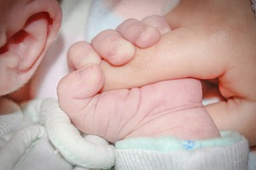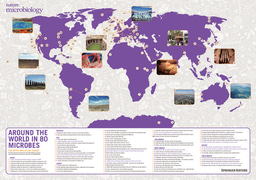Journal Club | The growing gut
Published in Microbiology

Three studies published this week suggest that the composition of the gut microbiome can influence growth, muscle mass and bone density. In a paper by Blanton et al in Science, the growth of mice transplanted with the gut microbiota of malnourished or healthy Malawi children was monitored. Despite being on the same diet, the ‘malnourished’ mice were severely stunted and underweight. Schwarzer et al, also in Science, found that Lactobacillus plantarum strains in the mice gut microbiota sustained growth hormone activity, this overcoming growth hormone resistance. Published in Cell this week, Charbonneau et al demonstrate that Malawian mothers with under-nourished infants have reduced milk oligosaccharides, which promote the growth of mice colonised with the infants’ microbiota.
These studies all used mice models, but they go a long way to suggesting that the nutritional status of infants could be improved by modifying their gut microbiota, perhaps through the development of a targeted probiotic.





Please sign in or register for FREE
If you are a registered user on Research Communities by Springer Nature, please sign in